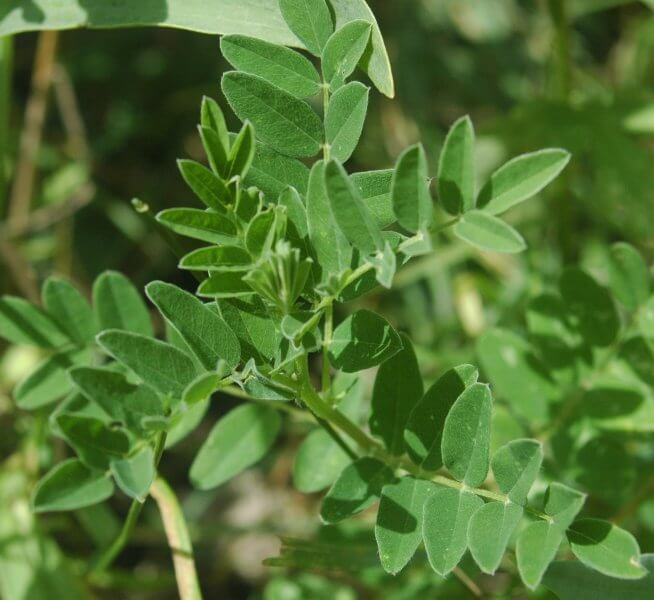Astragalus membraneceous (common name: milk vetch, huang qi) Photo: Sudhir Ahluwalia
Astragalus (huang qi) herb is, among things, known for its anti-cancer properties. The plant is a perennial herb or subshrub that grows to a height of 200 cm. The genus (Astragalus) to which the species belongs is one of the largest in the Fabaceae family, having approximately 2000 species. While the plant is one of the 50 fundamental Chinese medicinal herbs, 133 species of the genus are found in Europe alone. Astragalus membranaceus is said to have the highest concentration of active molecules. In trade, in addition to Astragalus (huang qi), other species are also sold as huang qi, the Chinese name of the herb. Astragalus (huang qi) is cultivated for medicine in China.
Astragalus (huang qi) was used as a stabilizer in pharmaceutical products and was included in the US Pharmacopeia as far back as 1820.
Astragalus (milk vetch) herb is used in traditional medicine in China and several countries in Europe and Asia. In China, it is a tonic herb that stimulates the immune system and helps reduce blood pressure and elevated blood sugar levels. Some use it as a substitute for ginseng, which comes from multiple species, particularly Panax ginseng.
The plant is often referred to as milk vetch, a name used for many other species in English. It is, therefore, best to stick to the Chinese name huang qi, the root of which is sold as a dietary supplement in the United States. The roots contain the highest levels of active ingredients when the plant is 4–5 years old. These, in China, are dried and sold in sliced, whole root, capsulated products, teas, tinctures, and other forms.
The ability of the plant to help modulate and build the immune system has been used by Chinese herbalists as an adjuvant medicine for cancer patients. The effectiveness of this use has been validated in multiple experiments conducted by Chinese scientists (Chu et al., 1988).
Astragalus (huang qi) ability to restore the immune system in experimental mice, sheep, and human cells affected by cancer has been documented (Cho & Leung, 2007; Yang et al., 2013). Yang et al. claim that the herb is safe and effective in antitumor therapy.
Astragalus (huang qi) ability to modulate the immune system and its use in treating diseases related to the immune system were also studied in experiments where two Chinese medicinal herbs, Astragalus membranaceus, and Ligustrum lucidum, were assessed (Sun et al., 1983). The plant was also effective in experiments on rats with induced liver cancer (Cui et al., 2003).
Three herbs, Echinacea purpurea, Astragalus membranaceus, and Glycyrrhiza, were seen to have an additive effect in experiments aimed at activating human immune cells (Brush et al., 2006). The herb was also seen to be effective against gastrointestinal cancers (Auyeung et al., 2016).
A review of the anticancer properties of Astragalus (huang qi) indicated that its leaves, roots, and stem could be used in lung, colorectal, breast, ovarian, liver, stomach, colon, gastric, cervical, and nasopharyngeal cancers (Miraj & Kiani, 2016).
Today, cancer specialists administer a two-drug regimen of vinorelbine and cisplatin to patients with advanced small-cell lung cancer. An Astragalus (huang qi) injective is claimed to improve such patients’ quality of life and survival (Guo et al., 2012). The herb was also observed to induce cancer cell death in chronic myeloid leukemia cell lines (Huang et al., 2012).
For more on this herb and other herbs used in traditional medicine – check here.
